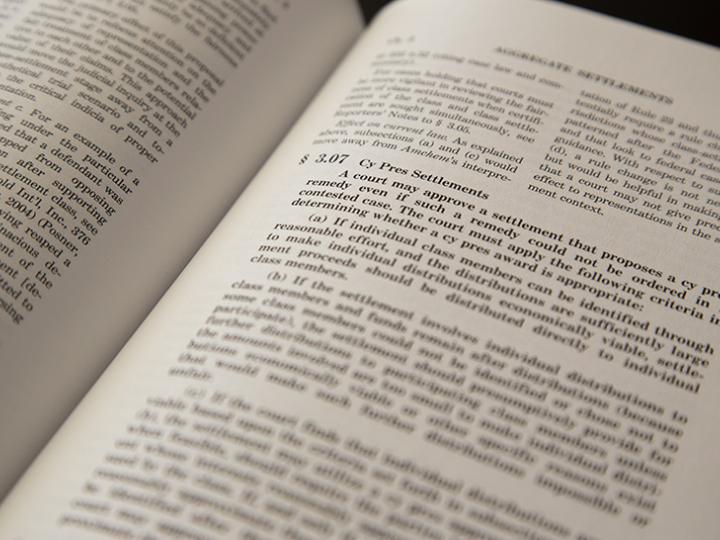In an opinion issued on August 9, 2016, the United States District Court, Southern District of New York, relied on Principles of the Law, Aggregate Litigation in determining a cy pres distribution of funds. The Honorable Sydney H. Stein rejected the “next-best” rule and adopted the Principles’ “reasonable-approximation” test in determining the appropriate recipients of the funds. In re Citigroup Inc. Securities Litigation, No. 07-Cv-9901 (S.D.N.Y. filed Aug. 9, 2016).
The Citigroup matter, a securities fraud class action case, was settled in 2013. 965 F. Supp. 2d 369 (S.D.N.Y. 2013). The settlement established a $590 million fund to compensate the class and pay costs and attorneys’ fees. The settlement also included a cy pres proviso: in the event there were any remaining funds for which distribution was not feasible, they would be donated to one or more non-sectarian, not-for-profit organizations designated by lead counsel and approved by the court.
Following the court’s approval of three cy pres designees selected to share in the residual funds, a class member moved for reconsideration of the Court’s order, arguing that a designee was required to be “the ‘next-best’ recipient apart from the class members themselves.”
The Court disagreed. Relying on § 307(c) of the Principles of Aggregate Litigation, the Court concluded that the proposed cy pres designees would be approved if those “organizations ‘reasonably approximate’ the interests of the class.” With respect to the “next-best” rule, the Court concluded that it was “not only impractical but would also tax judicial resources and require courts to opine on matters over which they have little cognizance. The lower costs and greater benefits of the reasonable-approximation test render it superior.”
